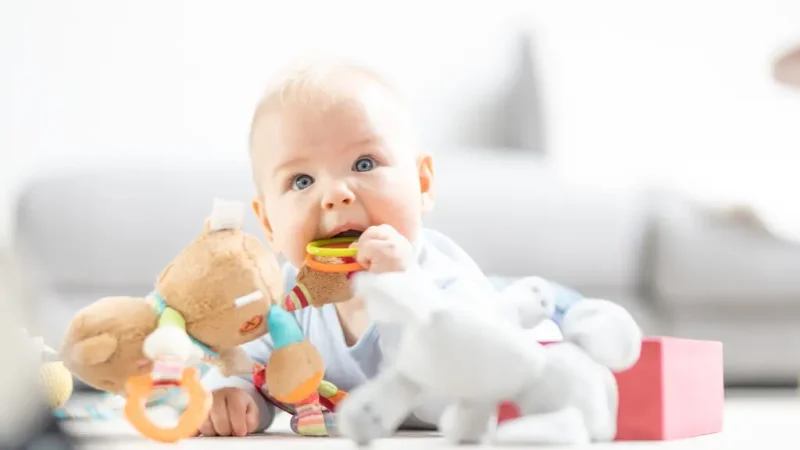
Ever wondered what exactly your baby needs to thrive? Bringing a new life into the world is an exhilarating experience, but it can also be a bit overwhelming.
There’s so much information out there, and sometimes it’s hard to know where to start. Let’s break it down together—what do babies need for healthy development?
Join me as we dive into the essentials, from nutrition to emotional support, in a fun and engaging way.
Nutrition: The Building Block of Growth
Think of nutrition as the foundation of a house. Without a strong base, everything else falls apart. Your baby’s body is growing at an astonishing rate, and proper nutrition is crucial to ensure they develop healthily.
Breastfeeding or Formula: What’s Best?
One of the first questions new parents face is whether to breastfeed or use formula. Breastfeeding is often recommended because it provides all the necessary nutrients and antibodies that help protect your baby from illnesses. Plus, it fosters a wonderful bonding experience. However, formula is an excellent alternative, especially if breastfeeding isn’t an option. It’s designed to be a complete substitute, providing the necessary vitamins and minerals.
Introducing Solids: When and How?
Between four to six months, your baby might be ready for solids. Start with pureed fruits, vegetables, and cereals. It’s like introducing new colors to their palette—each bite opens up a world of flavors and textures. Remember, this is a gradual process, and patience is key.
| Age | Food Type |
|---|---|
| 0-6 months | Breast milk or formula |
| 6-8 months | Pureed fruits, vegetables, cereals |
| 8-10 months | Soft finger foods, mashed foods |
| 10-12 months | Chopped foods, a variety of textures |
Sleep: The Magic Ingredient
Imagine trying to build a house without rest—impossible, right? Babies need ample sleep to grow and develop. Sleep affects everything from their mood to their ability to learn new skills.
How Much Sleep Does a Baby Need?
Newborns typically sleep about 16-17 hours a day. As they grow, the amount of sleep they need gradually decreases. By the time they are one year old, they will need around 14 hours of sleep, including naps. Sleep is like their body’s way of recharging for another day of discovery and growth.
Creating a Sleep Routine
A consistent sleep routine can help your baby feel secure and know what to expect. Think of it as setting the stage for a restful performance. A warm bath, a gentle lullaby, and a cozy blanket can work wonders. Keep the environment calm and quiet, and try to stick to the same bedtime each night.
Emotional Support: The Heartbeat of Development
Emotional support is like the heart of your baby’s development. It’s not just about physical growth but also about feeling loved, secure, and understood. This emotional foundation will help them navigate life’s ups and downs.
Bonding with Your Baby
Bonding is an intimate connection that develops between you and your baby. It’s built through everyday moments—feeding, cuddling, playing. This bond reassures your baby that they are loved and safe, helping them develop trust and a sense of security.
Responsive Parenting
Responsive parenting is about tuning into your baby’s needs and responding appropriately. It’s like a dance where you follow your baby’s lead. When they cry, you comfort them; when they smile, you smile back. This responsiveness helps your baby learn that their feelings matter and that they can rely on you.
Physical Development: Building Strength and Coordination
Physical development is like the construction of your baby’s house. They need to build strength and coordination to explore their world. This development happens through play and everyday activities.
Tummy Time: Why It’s Important
Tummy time is essential for building your baby’s neck, shoulder, and arm muscles. It’s like laying the bricks for a strong foundation. Start with a few minutes a day and gradually increase the time. Make it fun with toys and your presence to encourage them to lift their head and explore.
Milestones to Watch For
Every baby is unique, and they reach milestones at their own pace. However, there are general guidelines to watch for, such as rolling over, sitting up, crawling, and eventually walking. Celebrate these milestones—each one is a significant step in your baby’s development.
Social Development: Building Relationships
Social development is like the interior design of your baby’s house. It’s about building relationships and learning to interact with others. This development starts with you and gradually expands to other family members and friends.
Playtime: The Cornerstone of Social Skills
Playtime isn’t just about fun; it’s a critical part of learning social skills. Through play, your baby learns to communicate, share, and understand emotions. It’s like a rehearsal for real-life interactions.
Encouraging Social Interaction
Encourage your baby to interact with others by arranging playdates, attending baby groups, or simply spending time with family. These interactions help your baby develop social skills and learn about the world around them.
Conclusion: The Blueprint for Healthy Development
In conclusion, babies need a variety of elements for healthy development. Nutrition, sleep, emotional support, physical development, and social interaction are all crucial components. Think of each element as a piece of the puzzle that comes together to create a well-rounded and thriving baby. Remember, every baby is unique, and there’s no one-size-fits-all approach. Trust your instincts, be patient, and enjoy the journey of watching your baby grow and develop.
